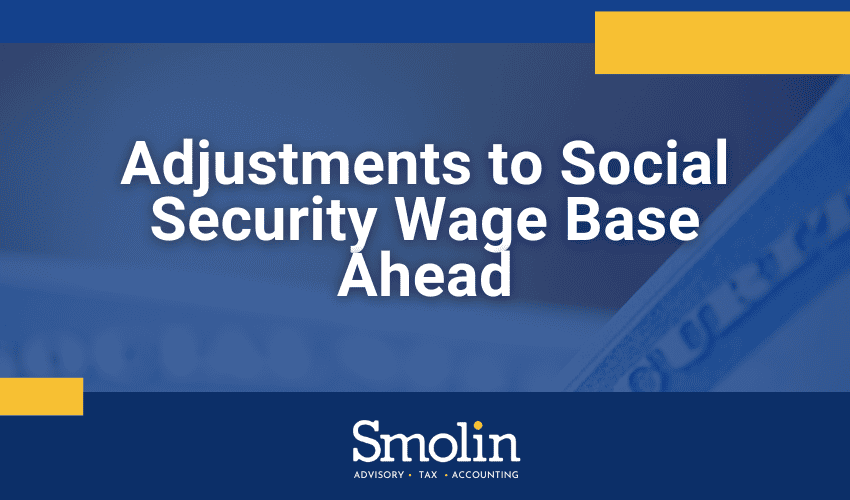Did you know that Social Security benefits can be federally taxed? It’s true. Depending on your income, up to 85% of your benefits could be impacted by federal income tax.
Understanding provisional income
How do you determine the amount of Social Security benefits to report as taxable income? That depends on your “provisional income.”
To calculate provisional income, begin with your adjusted gross income (AGI). You can find it on Page 1, Line 11 of Form 1040. Next, subtract your Social Security benefits to arrive at your adjusted AGI for this purpose.
Next, add the following to that adjusted AGI number:
- 50% of Social Security benefits
- Any tax-free municipal bond interest income
- Any tax-free interest on U.S. Savings Bonds used to pay college expenses
- Any tax-free adoption assistance payments from your employer
- Any deduction for student loan interest
- Any tax-free foreign earned income and housing allowances, and certain tax-free income from Puerto Rico or U.S. possessions
Now you know your provisional income.
Determine your tax scenario
After calculating your provisional income, it’s time to determine which of the following three scenarios you fall under.
- All benefits are tax free
If your provisional income is $32,000 or less…
and you file a joint return with your spouse, your Social Security benefits won’t be subject to federal income tax. You may still need to pay state tax.
If your provisional income is $25,000 or less…
and don’t file jointly, your Social Security benefits are generally federal-income-tax-free. However, if your spouse lived with you at any time during the year and you filed separately, you’ll need to report up to 85% of your benefits as income UNLESS your provisional income is zero or negative.
- Up to 50% of your benefits are taxed
If you file jointly with your spouse and have a provisional income between $32,001 and $44,000, you must report up to 50% of your Social Security benefits as income on Form 1040.
If your provisional income is between $25,001 and $34,000, and you don’t file a joint return, you must report up to 50% of your benefits as income.
- Up to 85% of your benefits are taxed
If you file jointly with your spouse and your provisional income is above $44,000, you must report up to 85% of your Social Security benefits as income on Form 1040.
If you don’t file a joint return and your provisional income is above $34,000, you will likely need to report up to 85% of your Social Security benefits as income.
Unless your provisional income is zero or a negative number, as mentioned earlier, you’ll also need to report up to 85% of your benefits if you’re married and file separately from a spouse who lived with you at any time during the year.
Questions? Smolin can help
Believe it or not, this is only a very simplified explanation of how Social Security benefits are taxed. Many nuances are involved, and the best way to learn how much, if any, Social Security you’ll need to report as income is to consult with your accountant.

